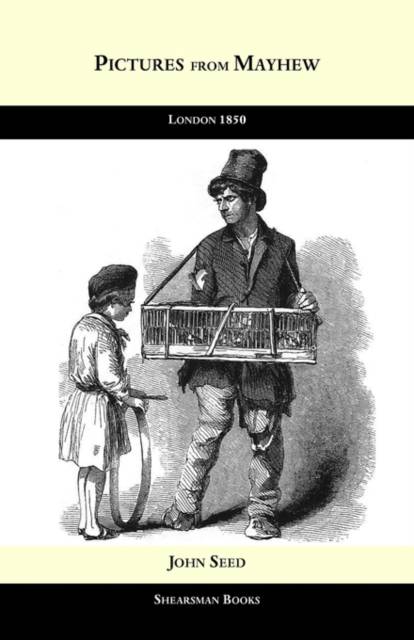
- Retrait gratuit dans votre magasin Club
- 7.000.000 titres dans notre catalogue
- Payer en toute sécurité
- Toujours un magasin près de chez vous
- Retrait gratuit dans votre magasin Club
- 7.000.0000 titres dans notre catalogue
- Payer en toute sécurité
- Toujours un magasin près de chez vous
Description
Every word in this book by John Seed is drawn from Henry Mayhew's writings on London, published in the 'Morning Chronicle' from 1849 to 1850, then in 63 editions of his own weekly paper, 'London Labour and the London Poor' between December 1850 and February 1852, and then again in the four-volume work of the same title. From the thousands of pages of Mayhew's investigations, John Seed has selected a few hundred extracts from those passages where he attempted to record the voices of London's working people. He has cut and rearranged the source texts, and has re-set them as poetry, splitting the lines in such a way as to make them both more easily readable and less easily, or quickly read, in an attempt to get closer to the original voices. The author likens this process to a sound engineer editing a tape to try to get rid of interfenernce or distortion. The final shape of the poem-sequence, and the form of the poems themselves, show the influence of American models such as Charles Reznikoff and William Carlos Williams, who both attempted to record common speech. 'Pictures from Mayhew' is published simultaneously with a large collection of John Seed's original poetry, most of which has been oput of print or hard to find for many years. John Seed lives in London and has published four collection of his poetry since the 1970s. His work was also featured in the seminal anthology 'A Various Art' (ed. Crozier & Longville, Carcanet 1987).
Spécifications
Parties prenantes
- Auteur(s) :
- Editeur:
Contenu
- Nombre de pages :
- 172
- Langue:
- Anglais
Caractéristiques
- EAN:
- 9780907562627
- Date de parution :
- 15-04-05
- Format:
- Livre broché
- Format numérique:
- Trade paperback (VS)
- Dimensions :
- 140 mm x 216 mm
- Poids :
- 226 g

Les avis
Nous publions uniquement les avis qui respectent les conditions requises. Consultez nos conditions pour les avis.






